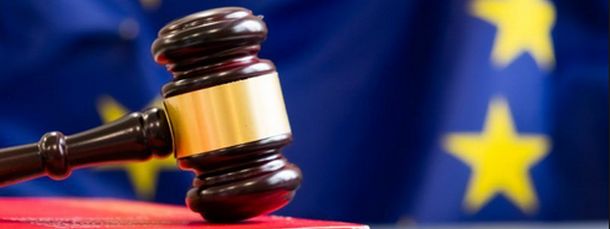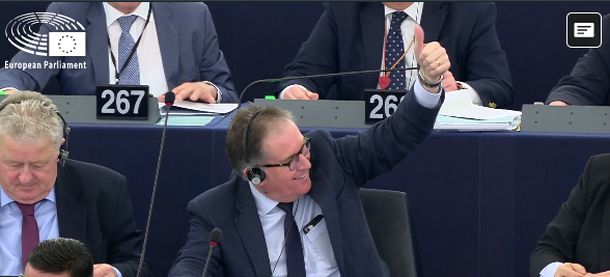The Scottish will begin fishing in Western Sahara too

According to BBC, Scottish fishing companies are now entering the waters of occupied Western Sahara, thereby benefiting from the highly controversial EU- Morocco fisheries agreement.
Published 17 January 2008
According to the multimedia presentation provided on the link below, the Scottish and UK authorities have helped the Scottish fishing in the occupied territories.
Western Isles to Western Sahara?
By Colin MacKinnon
BBC Scotland Eòrpa reporter
16 January 2008
http://news.bbc.co.uk/2/hi/uk_news/scotland/7192405.stm
The crew of a Western Isles trawler will decide in the next few weeks whether to return to the northwest coast of Africa to fish.
They spent a trial period sailing out of the port of Dhakla in southern Morocco late last year because their EU fishing quota was too small.
Angus Macleod, from Barra, explained why they might travel back the 1,500 nautical miles in the spring.
He told BBC Scotland: "Nobody wants to leave home but it's just not viable for us to continue, with the quota we have in the UK. I can't see that we can afford not to come back. The door's open, it's viable. We hope we can improve on what we've learned and be better next time round."
The 60m "Prowess" is one of more than a hundred European trawlers that have taken advantage of a recently renewed [2007] agreement between the EU and Morocco which allows foreign boats to fish in Western Sahara waters.
Red tape battle
It was not all plain sailing for the crew when they spent a month catching sardines there last November, according to skipper John Archie Macleod.
He said: "The biggest obstacle is because we're fishing outside the 15-mile zone we're classed as foreign, and the fish we catch is classed as foreign fish, so it's a customs problem - we have to pay customs duty on the import.
"It's the same for the processing factories when it comes to exporting the fish."
nother Scottish boat, the Peterhead based "Krossfjord", has remained in West Africa over the New Year.
Its crew has also battled with bureaucracy, but skipper George Nicol is bypassing much of it by using a processing plant he has bought and runs independently in Dhakla.
Mr Nicol said: "We have invested with Moroccan people locally, to sell on the fish that we're catching. It's been very difficult - we've met opposition from all quarters."
The Scots have sailed into political controversy in the region known as Western Sahara.
It's been a disputed territory since the mid-70s when Morocco annexed it after Spain relinquished colonial power.
International law
Some politicians, like SNP MEP Ian Hudghton, are opposed to the EU fishing agreement with Morocco, although he can understand why the Scots trawlermen are taking advantage when their quotas have been cut in recent years.
"It's not the fault of fishermen that we're in this situation," he said.
"I think that the politicians have let down Western Sahara, and have implemented here an agreement that breaches what should have been preserved in terms of international law and the right of people to expect support when they're invaded or taken over by neighbours or whoever."
The Moroccan Government disagrees. It maintains its right to govern over Western Sahara and believes the EU agreement benefits the region.
Dhakla spokesman Noureddine Aissaoui said: "It is Moroccan land. We work here in our country in peace and in security.
"You must have noticed all the investment and construction projects that have been ongoing for years; Morocco is developing its territory.
"Today, this is an opportunity for the whole world to be part of the plan to develop this region."
It has not been easy so far for the Scots who have tested the water of Western Sahara, but they hope this opportunity will be the answer to their difficulty with restricted EU quotas at home. Oh, and the weather's better too, as they've discovered.
This issue is featured in Eòrpa on BBC Two Scotland at 1930 GMT on Thursday, 17 January.
News
Here is the EU Council's legal advice on fishing in occupied waters
Before voting on the new EU-Morocco fish deal in 2018, extending into occupied Western Sahara, several EU Member States asked for legal advice that would determine their vote. WSRW today publishes that influential legal opinion, which appears to miss the ball entirely.
05 March 2020
Hans Corell criticizes EU fisheries in Western Sahara
The former Legal Counsel to the UN Security Counsel, Mr. Hans Corell, comments on the EU's fisheries activities in Western Sahara.
20 November 2019
EU Court reaffirms position on Western Sahara
Polisario has a case, but it should be pursued when the time is right, Court implies.
28 February 2019
European Parliament disregards Court and adopts Morocco fish deal
Notwithstanding four consecutive rulings of the EU's highest Court calling such a practice illegal, the European Parliament has just now voted in favour of the EU-Morocco Fisheries Agreement that will be applied to the waters of occupied Western Sahara.
12 February 2019


